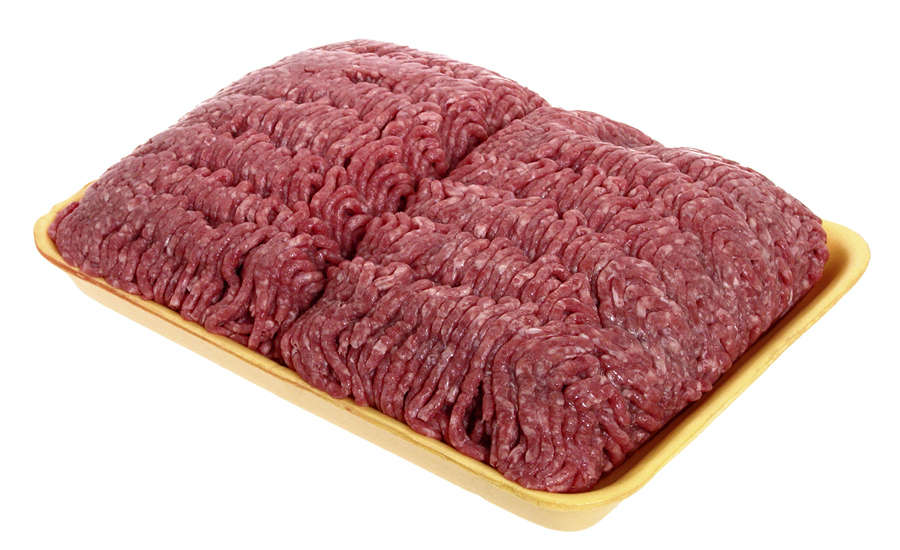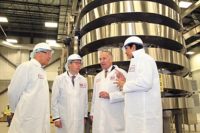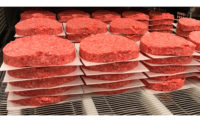Minneapolis-based Cargill Inc. opened a nearly $50 million distribution center located at its Dodge City, Kan., beef processing facility.
The new site consists of more than 9,000 feet of conveyor belts, connecting to a row of towering shelves that stretch the entire height of the building. The shelving holds approximately 133,000, 60-pound boxes of beef—the equivalent of 17,000 head of cattle. Crane-like devices move boxes in and out of the shelves. Each day, the system stores an average of 40,000 boxes, while simultaneously shipping another 40,000 to customers worldwide.
This new automated system increases capacity of the former system by 70,000 boxes, and will improve the facility’s ability to keep highly perishable fresh meat products safe while awaiting distribution to Cargill’s foodservice and retail customers.
Cargill announced the project in 2013, with construction beginning the fourth quarter of the same year. It replaces a distribution system more than three decades old and brings increased efficiency and better reliability for the operations that serve Cargill’s foodservice, retail and processed foods customers. In addition to lower operating and maintenance costs, the new system is more environmentally sustainable due to its improved energy use, which is aligned with the company’s ongoing efforts to reduce the plant’s environmental footprint.
“As customer requirements become more complex, we strive to maintain a reputation of exceeding their expectations. Our processing plant at Dodge City plays a key role in our beef business, and the new distribution system will help us retain our ability to promptly deliver the highest quality products to our customers,” says John Keating, president of Cargill Beef. “We recognize that our success would not be possible without dedicated employees, and the people of Dodge City have long been exemplary of what it takes to provide the utmost quality beef products to help nourish people around the world.”
The Dodge City facility is the largest of six Cargill beef processing plants in the United States. It opened in 1979 and currently processes more than 5,400 cattle each day, distributing products across the nation and to seven countries worldwide.


